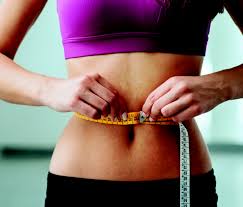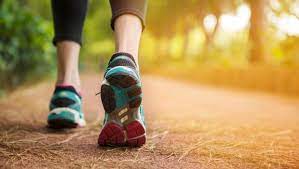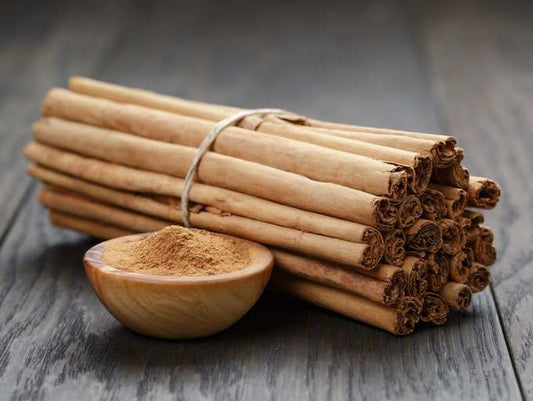I keep hearing about collagen — WTF is it?
Collagen is the most abundant protein in humans and other mammals. Collagen forms fibrous, connective tissue within your body. It is a major building block for your skin, hair, nails, joints, tendons and muscles. Collagen is the glue that holds all these things together. It isn't just a supplement, it's something you're born having. You’ve got the stuff in your body right now!
I hear about different “Types” of Collagen e.g. Type 1, Type 3 etc. Please explain!
There are at least 16 types of collagen. The four main types are type I, II, III and IV.
-
Type I: This type accounts for 90% of your body's collagen and is made of densely packed fibres. It provides structure to skin, bones, tendons, fibrous cartilage, connective tissue and teeth.
-
Type II: This type is made of more loosely packed fibres and is found in elastic cartilage, which cushions joints.
-
Type III: This type supports the structure of muscles, organs and arteries.
-
Type IV: This type helps with filtration and is found in layers of your skin.
Bovine collagen like Clean and Pure Collagen Protein powder (by Lean Caffeine) mainly consists of Types 1 and 3 but also provides your body with Amino Acids (like glycine and proline) which enables your body to produce more Type 1 collagen, and additionally Type 2 collagen (see later section on nutrients).
So, if it's already in my body, why do I need to add Collagen to my diet?
Like Human Growth Hormone, collagen production declines as you age. In your twenties, collagen production begins to slow down, and the quality of the collagen you still have declines. Basically, as you age your body produces less and lower-quality collagen.
Additionally, the Oestrogen hormone within your body is important for the development of collagen. As women enter menopause and perimenopause and their oestrogen levels decline, the levels of collagen in their bodies plummet. Women may notice their skin looking tired and may develop more fine lines and wrinkles. Your skin may also become dry and itchy.
An easy way to replace the lost collagen as you age is to add collagen protein powder to your diet.
Are there other nutrients that can increase your body’s natural collagen production?
Your body makes procollagen by combining two amino acids: glycine and proline. This process uses vitamin C.
You may be able to help your body’s natural production of collagen by making sure you get plenty of the following nutrients:
-
Vitamin C: Large amounts are found in citrus fruits, bell peppers and strawberries
-
Proline: Large amounts are found in egg whites, wheat germ, dairy products, cabbage, asparagus and mushrooms.
-
Glycine: Large amounts are found in pork skin, chicken skin and gelatin.
-
Copper: Large amounts are found in organ meats, sesame seeds, cocoa powder, cashews and lentils.
What does Hydrolysed / Hydrolyzed Collagen or Collagen Peptides mean?
The term “collagen peptides” refers to collagen that has undergone a process called hydrolysis. This process breaks down the amino acids in collagen into smaller molecules, making it easier for your body to absorb. So, in effect the terms Collagen Peptides and Hydrolysed / Hydrolyzed Collagen mean the same thing.
Clean and Pure Collagen Protein Powder is has gone through enzymatic hydrolysis (an enzyme breaks down the collagen, so it’s more easily absorbed by your body). It also means it rapidly dissolves in any liquid – even cold water.
What happens when the collagen in your body gets “old”?
Think of collagen fibres as pieces of elastic. The longer you use the elastic, the more it stretches out. Eventually, it probably even breaks. The same thing happens to the collagen in your body: it stretches out and loses elasticity. And if it's weakened, all the body parts that collagen is found in will be, too. Your skin will produce wrinkles and fine lines, and your joints and tendons will become more susceptible to injury.
Is the best way to increase your body’s collagen to just eat it?
That's exactly what we're saying! The best way to reap many of the benefits of collagen — younger-looking skin, healthier joints and ligaments — is to consume it.
Jennifer Garner does it — and so do a ton of other people. Collagen protein powder can be added to any hot or cold liquid — smoothies, tea, coffee, stir fries, stews, casseroles etc. It can also be added to baked goods like muffins, bread, bagels etc. It’s virtually flavourless and not noticeable.
How much collagen should I consume daily?
Most recommended serving sizes are 15-20 grams (that’s a level tablespoon to a heaped tablespoon), and that's what you should start with, daily. Elite athletes who put a lot of strain on their muscles can handle more, up to about 30 or 40 grams a day. For the rest of us a level tablespoon a day should be enough (this is what I take).
When will I start to notice a difference?
Collagen isn't like an antibiotic. You won't see a change immediately. Many people report slight differences within a fortnight to a month and see real developments (in hair growth or tendon strengthening) after three to four months. It’s an investment in your health that will reap benefits.
What's the best time of day to take my collagen?
There are a lot of “theories” about this!
Some people argue you should take it first thing in the morning, before eating, and others say the best time to take collagen is at night, when you're going to bed. Here's the thing: There's not enough evidence to support either argument, so just take it when you remember (-:
I heard some bone broth supplements tested in the US had traces of pesticides and other chemicals including hormones – is this true?
Yes! Check out this study here where several brands of bone broth derived supplements including collagen had traces of nasties:
http://taylorhooton.org/bone-broth-protein-tested-found-steroids-chemical-pesticides-pharmaceuticals/
This is why Clean and Pure Protein Powder is lab tested to verify it is free from pesticides, growth hormones and vet medicines. It’s also why we chose to source our collagen protein powder from grass fed EU cattle (Swedish cattle) as the prevalence of vet meds in the EU is way less than in Brazil or Argentina and we chose to not contribute towards deforestation in the Amazon.
You can buy our lab tested Swedish source collagen protein powder here -
https://leancaffeine.co.uk/shop
Where does collagen protein powder come from?
The two most common sources are bovine hides (bovine collagen) and fish scales (marine collagen).
Clean and Pure Collagen Protein Powder is from Swedish Cattle (Bovine Collagen) and is lab tested for pesticides, growth hormones and vet medicines.
Is this a bunch of hullabaloo or is this stuff backed by science?
This 2015 study:
https://www.ncbi.nlm.nih.gov/pubmed/26362110 found after an eight week trial, oral collagen consumption increased skin hydration, thereby decreasing the appearance of fine lines.
These 2 studies revealed that pain related to joint injury can be remedied with collagen supplements:
https://www.ncbi.nlm.nih.gov/pubmed/11071580
https://www.ncbi.nlm.nih.gov/pubmed/18416885
P.S. You can buy our lab tested Swedish sourced Collagen Protein Powder here:
https://leancaffeine.co.uk/shop



